Annual Report




CASI 2021/22
Center for the Advanced Study of India Ronald O. Perelman Center for Political Science & Economics University of Pennsylvania 133 South 36th Street, Suite 230 Philadelphia, PA 19104-6215
Telephone: +1 (215) 898-6247 Website: casi.sas.upenn.edu
Table of Contents 1 About CASI. . . . . . . . . . . . . . . . . . . . . . . . . . . . 4 2 Current Research . . . . . . . . . . . . . . . . . . . . . . 8 3 Building Reseach Networks . . . . . . . . . . . . 18 4 CASI Student Programs . . . . . . . . . . . . . . . 24 5 Outreach & Events . . . . . . . . . . . . . . . . . . . . 32 6 Looking Ahead . . . . . . . . . . . . . . . . . . . . . . . 38 7 UPIASI . . . . . . . . . . . . . . . . . . . . . . . . . . . . . . 42 2021/22 ANNUAL REPORT 3
About CASI
1 4 CENTER FOR THE ADVANCED STUDY OF INDIA
Mission Statement
Founded in 1992, the Center for the Advanced Study of India at the University of Pennsylvania is the first research institution in the United States dedicated to the study of contemporary India. A national resource, it fills an urgent need for objective knowledge of India’s politics, rapidly changing economy, and social transformations.
The Center seeks to enrich our understanding of contemporary India by conducting data-driven, policy-oriented research on India’s most pressing challenges, convening discussions with scholars, policymakers, and practitioners on key issues, hosting distinguished and new voices from India at Penn, and providing opportunities for new generations of students and scholars to conduct research and hold internships in India.
5 2021/22 ANNUAL REPORT
We are delighted to present this annual report to you, which revives Founding Director Professor Francine Frankel’s tradition of yearly Director’s Reports. I joined CASI as Director in July of 2020, during the early months of a pandemic that has continually upended our local and global communities. For our Center, these disruptions have heavily constrained our ability to conduct in-country research, support students traveling and working in India, host scholars from India at Penn, and host events on and off campus.
Director’s Note
6 CENTER FOR THE ADVANCED STUDY OF INDIA
Given these challenges, I am especially proud of what our Center has been able to achieve. The first priority we established was to expand our support to students and early career scholars during this difficult time. We did so by expanding our postdoctoral fellows program, offering yearlong and summer research fellowships to graduate and undergraduate students, and supporting efforts for Penn faculty to hire students as research assistants on India-based projects. This summer, we were delighted to be able to resume our popular student internship program in India after a two-year hiatus. We have also maintained a robust, policyrelevant research agenda, which has always been a key distinguishing feature of CASI’s activities. This year, we pursued seven research projects focused on India’s urban and rural transformations. Conducting this work during the pandemic necessitated several pivots to remote research strategies. Doing so allowed us to yield a rich array of outcomes, including a published book manuscript, a forthcoming book manuscript, a public dataset, a major research grant, and several peer-reviewed articles.
One silver lining of the pandemic has been to spur our virtual programming efforts. We have been delighted by the strong turnout from across the globe at the nearly 60 virtual seminars and workshops we have held over the past two years. Our talks were cosponsored by over 15 units across campus, and have featured scholars, policymakers, diplomats, and journalists, offering insights on topics ranging from Sino-Indian relations to rural land markets to urban migrant workers. We look forward to continuing to build our virtual programming presence, even as we look to resume in-person events in the Fall.
The new academic year will mark the confluence of two anniversaries for CASI: the 75th anniversary of India’s independence coincides with the Center’s 30th anniversary. To mark these milestones, we are planning an exciting series of events, including a daylong symposium at Penn on October 13th , a series of research workshops in Philadelphia and New Delhi, and the launch of a new shortresidency program to bring distinguished fellows from the fields of media, society, and culture to campus. We look forward to seeing you at many of these events.
Tariq Thachil
CASI Director
Professor of Political Science Madan Lal Sobti Professor for the Study of Contemporary India University of Pennsylvania

2021/22 ANNUAL REPORT 7
Current Research
2 CENTER FOR THE ADVANCED STUDY OF INDIA 8
CASI is increasingly well-recognized for generating high-quality empirical research and analyses, building rigorous and innovative data sets, and creating long-term collaborations with academics, policymakers and practitioners working close to the ground in both India and the United States. This research has been funded by major grants from private and public sources including the Ford Foundation, The Starr Foundation, GE Fund, Bill and Melinda Gates Foundation, John D. and Catherine T. MacArthur Foundation, The John Templeton Foundation, Smith Richardson Foundation, Lok Foundation, funding from the Ministry of Overseas Indian Affairs, Government of India, Penn Global, Penn School of Arts and Sciences and members of the International Advisory Board, Penn Alumni Community, and Friends of CASI. The research focus on critical and understudied aspects of India’s: economic transition urbanizaion agriculture
well-being of socially marginalized groups migration human capital governance and politics social change security and foreign policy
2021/22 ANNUAL REPORT 9
Migrants and Machine Politics: How are major Indian cities managing growing slum populations?

The project examines what drives development within rapidly proliferating slums across India. CASI has assembled the most systematic evidence to date showing local infrastructure development within India’s slums is driven by selfgoverning associations set up by slum communities. The manuscript will appear in the prestigious Studies in Political Behavior Series published by Princeton University Press (forthcoming January 2023). The book is the first India-based title to appear in this series. The book will also be published in India by Penguin/ RandomHouse. Publication is slated for January 2023.
Migrants and Machine Politics


Drawing on years of pioneering fieldwork in India’s slums, including ethnographic observation, interviews, surveys, and experiments, Adam Michael Auerbach and Tariq Thachil reveal how migrants harness forces of political competition—as residents, voters, community leaders, and party workers—to sow unexpected seeds of accountability within city politics. This multifaceted agency provokes new questions about how political networks form during urbanization. In answering these questions, this book overturns longstanding assumptions about how political machines exploit the urban poor to stifle competition, foster ethnic favoritism, and entrench vote buying.
By documenting how poor migrants actively shape urban politics in counterintuitive ways, Migrants and Machine Politics sheds new light on the political consequences of urbanization across India and the Global South.
About the Book: Migrants and Machine Politics: How India’s Urban Poor Seek Representation and Responsiveness
As the Global South rapidly urbanizes, millions of people have migrated from the countryside to urban slums, which now house one billion people worldwide. The transformative potential of urbanization hinges on whether and how poor migrants are integrated into city politics. Popular and scholarly accounts paint migrant slums as exhausted by dispossession, subdued by local dons, bought off by wily politicians, or polarized by ethnic appeals. Migrants and Machine Politics shows how slum residents in India routinely defy such portrayals, actively constructing and wielding political machine networks to demand important, albeit imperfect, representation and responsiveness within the country’s expanding cities.
AUTHORS
Adam Auerbach
Tariq Thachil
A DAM M C HA E L AU E R BAC H & TA R Q TH AC H I L HOW INDIA'S URBAN POOR SEEK REPRESENTATION AND RESPONSIVENESS M i g r a n t s a n d M a c h i n e P o l i t i c s AUERBACH& THACHIL
CENTER FOR THE ADVANCED STUDY OF INDIA 10
Colossus: An Analysis of India’s Capital City
The book was co-edited by CASI Non-Resident Visiting Scholar, Sanjoy Chakravorty and CASI Fall 2021 Visiting Scholar Neelanjan Sircar.

About the Book: Colossus: The Anatomy of Delhi
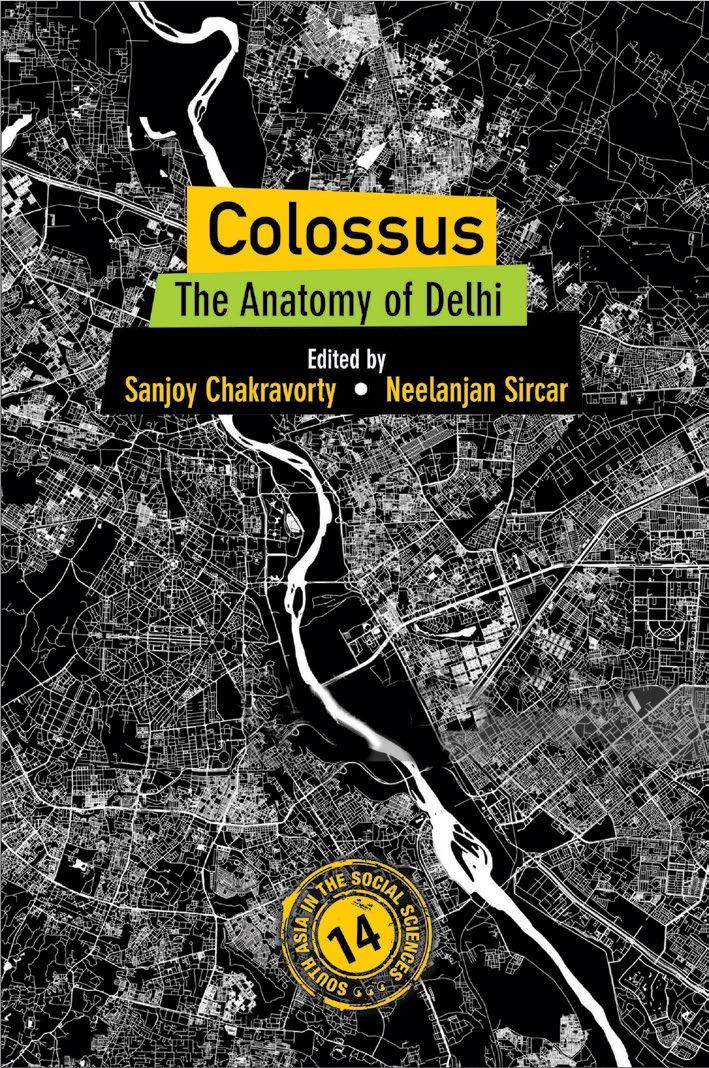

The National Capital Region (NCR) of Delhi is a diverse and unequal space. Its more than 30 million people are sharply differentiated by economic class, religion and caste, education, language, and migration status. Its 45,000 square kilometers is a tapestry of spaces—ghettoes, slums, enclaves, institutional areas, planned and unplanned and authorized and unauthorized colonies, forests and agricultural fields. In some ways it is a dynamic society aspiring to global city grandeur; in other ways it is a bastion of tradition, sectarianism and hierarchy. Colossus details these realities and paradoxes under three themes: social change, community and state, and inequality. From the material condition of the metropolis—its housing, services, crime and pollution—to its social organization—of who marries whom, who eats with whom, and who votes for whom—this book unpacks the complex reality of a metropolitan region that is emblematic of India’s aspirations and contradictions.
The analyses are based on the NCR Survey, a wide-ranging social survey of 5,500 households, alongside comments from scholars with specialized knowledge of NCR. Many of the book’s chapters draw on papers originally presented at the November 2017 CASI 25th Anniversary workshop on Urbanization.
AUTHORS
Sanjoy Chakravorty
Neelanjan Sircar
2021/22 ANNUAL REPORT 11
Small Town Governance:
What are the governance challenges facing small cities?

Led by Tariq Thachil, Adam Michael Auerbach and incoming CASI Postdoctoral Fellow Shikar Singh (Ph.D. in Political Science, 2022, Yale). CASI has launched the first systematic set of studies on the political economy of “small-scale urbanization” in India. A significant percentage of urban residents across the global south live in small towns. In India, the percentage of citizens living in cities with populations less than 100,000 residents equals those living in million-plus cities. Indeed, 85% of India’s towns have less than 100,000 people. Yet little is known about the political economy of these urban local bodies. What governance challenges do small towns face? Why are small towns so unsuccessful in raising tax revenues? Why do they often fail to spend the funds provided to them by central and state governments?




CASI will conduct the first ever largescale surveys of small-town bureaucrats and politicians, as well as ordinary citizens. This research will be supported by an India Research and Engagement Fund (IREF) grant awarded to CASI by Penn Global for 2022-2024. This project will take place in collaboration with the Directorate of Local Bodies in the Indian state of Rajasthan. Project findings will be disseminated to a group of scholars and policymakers at a major workshop hosted by CASI and UPIASI in the summer of 2024 in New Delhi.

North India - Below 100k Residents Esri, HERE, Garmin, USGS, Esri, HERE India First Level Boundary India_Merged Final V2 For Maps _ Copy Between 50k and 100k Below 50k Other 2/10/2022, 11:21:24 PM 0 190 38095 mi 0 300 600150 km 1:12,500,000 ArcGIS Web AppBuilder Esri, HERE, Garmin, USGS Esri, HERE AUTHORS
Adam Auerbach
Tariq Thachil
Shikar Singh
CENTER FOR THE ADVANCED STUDY OF INDIA 12
Local Democracy in Urban India


In partnership with the Trivedi Centre for Political Data at Ashoka University, CASI has compiled a unique dataset of local town-level election results for urban India. This project provides new insights on democratic representation and decentralization in urban India.
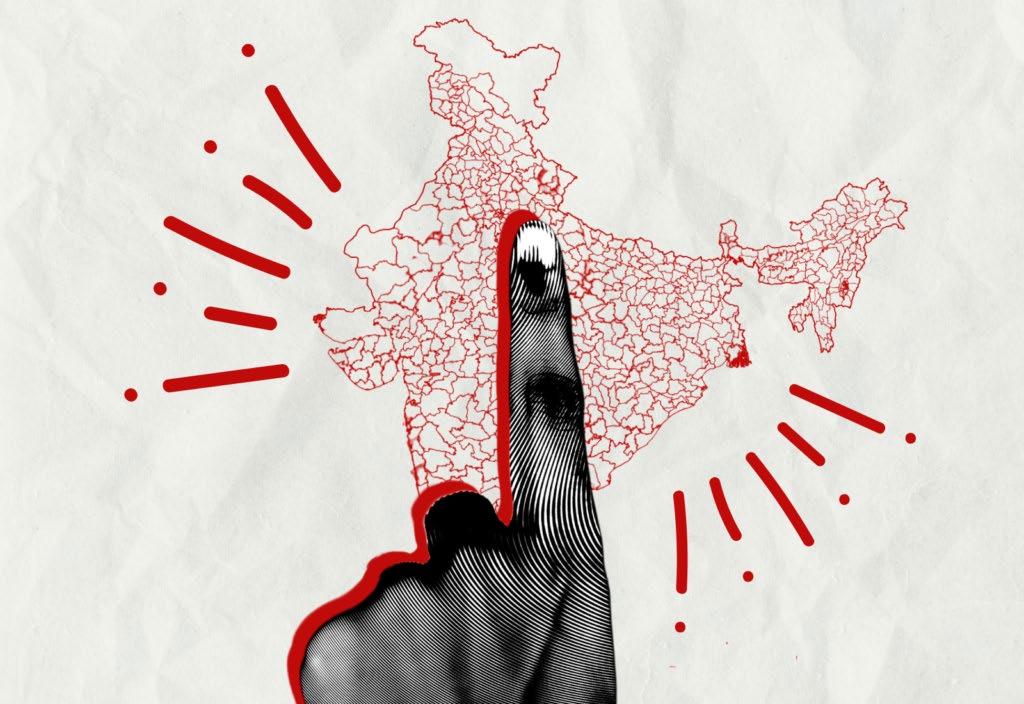

Democracy in India is increasingly decentralized, making local elections important sites of political action and policy implementation. However, unlike national and provincial elections, little is known about these local elections. In large part, this inattention is due to the significant challenges in collecting data on these contests, which is not kept by a centralized election commission, and which dwarfs national elections in their scale.
CASI and Ashoka jointly collected all available data on local urban elections, with the goal of providing some of the first analyses of how these elections are conducted, who runs, and who wins and ultimately serves as the face of local government across India. These analyses will form the basis of a series of interlinked articles. This data has been previously inaccessible to researchers, and is now publicly available to spur research on democracy in India’s urban frontier.
RESEARCH AFFILIATES
Adam Auerbach
Tariq Thachil
Gilles Verniers
2021/22 ANNUAL REPORT 13
Mapping Urban Inequalities: How does social inequality manifest in India’s cities?

Recent studies show Indian cities are engines of economic growth and social mobility. Yet their potential is constrained by unequal access to opportunities within them. CASI Postdoctoral Research Fellow Naveen Bharathi and his team have continued their work collecting unprecedently fine-grained data on inequality and segregation in urban India. Such analyses are crucial for realizing the potential of India’s cities as engines of development.
This work yielded several papers, one of which was published in Urban Studies (2022). This published article unpacks the political channels that link residential segregation with access to public services and was featured in The Economist. The project combined large-scale quantitative analysis using neighborhood-level national census data for all 150 towns in India with at least 0.3 million residents, and multiyear qualitative fieldwork in Bengaluru, a metropolis of over 10 million residents. A second paper, under review for publication in the journal Demography, shows that caste-based segregation in India’s villages is associated with reduced availability of household amenities and increased poverty.

A third paper, currently being prepared for submission, examines the implication of urban inequalities for questions of environmental justice. Using data from ≈ 1.75 million households located in more than 15,000 neighborhoods, the research finds that the spatially marginalized groups in India—Dalits and Muslims—live in the neighborhoods that are closest to stationary sources of air pollution, experience the greatest urban heat island effects, and have the least access to mitigating green spaces.
 RESEARCH AFFILIATE
Naveen Bharathi
RESEARCH AFFILIATE
Naveen Bharathi
CENTER FOR THE ADVANCED STUDY OF INDIA 14
Storage, Price Dynamics, and Welfare in Agricultural Supply Chains

Despite producing sufficient foodgrains to feed its population, India sees widespread hunger and malnourishment in its population. One cause of this unfortunate paradox is food waste. Lack of adequate storage for agricultural produce in developing countries is a wellknown problem. While it is commonly understood that lack of storage leads to wastage of agricultural output, there is a lack of systemic empirical evidence on basic facts: for instance, How does wastage occur? How does wastage vary across crops? Where in the supply chain does wastage occur and who gets impacted? CASI will look to better understand the role of storage in the observed price dynamics and welfare of consumers and farmers. Importantly, this will inform our understanding of the appropriate role of public policy and government interventions.

This project is lead by Non-Resident Visiting Scholars Shoumitro Chatterjee and Aprajit Mahajan , funded by a generous CSR gift. This year, the data collection for this project was designed, piloted, and is now in the field, on schedule for project completion by the end of the next academic year.
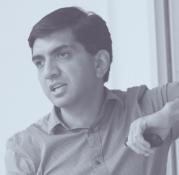
 RESEARCH AFFILIATES
Shoumitro Chatterjee
Tariq Thachil
Aprajit Mahajan
RESEARCH AFFILIATES
Shoumitro Chatterjee
Tariq Thachil
Aprajit Mahajan
2021/22 ANNUAL REPORT 15
Digitization of the Indian State


Another stream of research focuses on the material and political effects of the digital transformation of state agencies in India. The Indian government has made a significant investment in digital governance, a transition that raises several challenges and opportunities. How do new forms of digital governance interact, depend on, or replace prior paper-based processes? Who is included, excluded by such transitions? How are errors in this transition process identified and corrected? These questions were analyzed in a project that was led by CASI Postdoctoral Research Fellow, Nafis Aziz Hasan Previously gathered ethnographic data was channeled into multiple writing outputs for publications. His journal article on how the material changes in the administration of agricultural land records is impacting the amount of work citizens must expend to access public services was written and submitted to the flagship anthropological journal American Ethnologist and is under review. A second journal article, describing the emergence of real-time web dashboards to govern the Indian administration was written and was submitted to the flagship STS journal, Science Technology and Human Values by the end of Hasan’s term at CASI (July 31, 2022). At CASI, Hasan also completed working on a co-authored book detailing the 20-year history of policies of technological governance and their excesses in India. The book is in the final stages of production with the Institute of Network Cultures, Amsterdam.
 RESEARCH AFFILIATE
Nafis Aziz Hasan
RESEARCH AFFILIATE
Nafis Aziz Hasan
CENTER FOR THE ADVANCED STUDY OF INDIA 16
Some Highlights from CASI Research: Recognitions and in the Press
CASI Director, Tariq Thachil and CASI Non-Resident Visiting Scholar, Adam Auerbach (American University) received the 2021 American Journal of Political Science Best Article Award by the Midwest Political Science Association—which recognizes a single paper from among all research published in the journal the preceding year—for their paper, “Cultivating Clients: Reputation, Responsiveness, and Ethnic Indifference in India’s Slums .”
“ Explaining the Decline in Women’s Role in Workforce” by Abhishek Jha was published in the December 13, 2021 issue of Hindustan Times. The article offers key results from a survey of 15,000 Indian households conducted by CASI Senior Fellow Devesh Kapur (Director, 2006–18), CASI Fall 2021 Visiting Scholar and 2013–15 Postdoctoral Research Fellow Neelanjan Sircar, and CASI Non-Resident Visiting Scholar Milan Vaishnav on gender, social change, and urbanization.
An excerpt of When Ideas Matter: Democracy and Corruption in India (Cambridge University Press) by Bilal Baloch (Co-Founder and COO, Enquire; CASI Non-Resident Visiting Scholar; CASI 2017–19 Postdoctoral Research Fellow) was published in “ 10 Years Later, Assessing UPA’s Response to IAC ” in the December 11, 2021 issue of Hindustan Times
When Ideas Matter: Democracy and Corruption in India (Cambridge University Press, 2021) by Bilal Baloch (CASI Non-Resident Visiting Scholar; Co-Founder and COO, Enquire) was reviewed in “ Ideas Definitely Matter! ” by Satyendra Ranjan in the April 30, 2022 issue of Economic & Political Weekly
Naveen Bharathi (CASI Postdoctoral Research Fellow) was interviewed by Betwa Sharma in “ Muslims & Dalits Face The Worst Residential Segregation & Discrimination In Urban Cities, Study Confirms” in the May 24, 2022 issue of Article 14. The interview focuses on his February 2022 Urban Studies co-authored report, “ Residential Segregation and Public Services in Urban India .”
2021/22 ANNUAL REPORT 17
Building Research Networks & Capacity
3
CENTER FOR THE ADVANCED STUDY OF INDIA 18
Visiting Scholars and Fellows
In keeping with CASI’s commitment to supporting research on contemporary India across the social sciences, these scholars hail from a variety of disciplines including history, anthropology, economics, and political science. Their work showcases research excellence across a wide range of methodological orientations and subject areas. From the workings of agricultural markets to the unfolding of India’s urban transition, from the nature of environmental transformations to the politics of national security, these innovative scholars will continue to shape our understanding of many of India’s most pressing concerns. We are delighted to have them enrich our Center.
VS/VF Program Summary: 100
SCHOLARS/FELLOWS SINCE FORMALIZING THE PROGRAM IN 2007
THIS YEAR, NON-RESIDENT VISITING SCHOLARS AND FELLOWS REPRESENT:
5 COUNTRIES
9
ARE CO-PIS ON CASI MAJOR RESEARCH GRANTS AND OTHER SPONSORED FUNDING
17 INSTITUTIONS
2021/22 ANNUAL REPORT 19















CASI is fortunate to have these 21 distinguished researchers, in residence and non-resident, serve as Visiting Scholars & Senior Fellows and Sobti Family Doctoral Fellows for the academic year.
Adam Auerbach American University
Gilles Verniers Ashoka University
Shoumitro Chatterjee SAIS, Johns Hopkins University (2022–) Penn State (previously)
Anit Mukherjee
Nanyang
Technological University
FY13 CASI Postdoctoral Research Fellow
Aprajit
Mahajan UC, Berkeley
Bilal Baloch
Enquire FY17–18 CASI Postdoctoral Research Fellow
Milan Vaishnav Carnegie Endowment for
International Peace
Debjani Bhattacharyya University of Zürich
Sanjoy Chakravorty Temple University
Gareth Nellis
UC,
San Diego
Kimberly Noronha
2021–22 Sobti Family
Fellow
Marshall M. Brown Chicago Council on Global Affairs
CASI
Acting Director
2018–20
Eswaran Sridharan
UPIASI Sneha
Sarah Mani
2021–22 Sobti Family
Fellow
Neelanjan SIrcar Centre for Policy Research Fall 2021 Visiting Scholar; FY13–15 CASI Postdoctoral Research Fellow
CENTER FOR THE ADVANCED STUDY OF INDIA 20
Featured Fellow Swagato Ganguly




Swagato Ganguly is a CASI Spring 2022 Visiting Fellow and was the Editorial Page Editor of The Times of India from 2009–21. He obtained his Ph.D. in Comparative Literature and Literary Theory from the University of Pennsylvania in 1998, and has worked since then on editorial pages of Indian newspapers, commenting on national politics and international affairs. He is currently a Research Affiliate, Lakshmi Mittal South Asia Institute, Harvard University; Adjunct Fellow, Gateway House; and Consulting Editor of The Times of India. His contemporary research interests lie in strategic affairs, geopolitics of the Indo-Pacific region, Indian foreign policy in a complex, transforming world, and history of liberal thought in India. His two most recent books are: (as author) Idolatry and the Colonial Idea of India: Visions of Horror, Allegories of Enlightenment, Routledge 2018; (as anthology editor) Destined to Fight?: India and Pakistan 1990–2017, Times Group Books 2017. His research at CASI focuses on the geopolitical triangle between India, China, and the United States in the Indo-Pacific region.
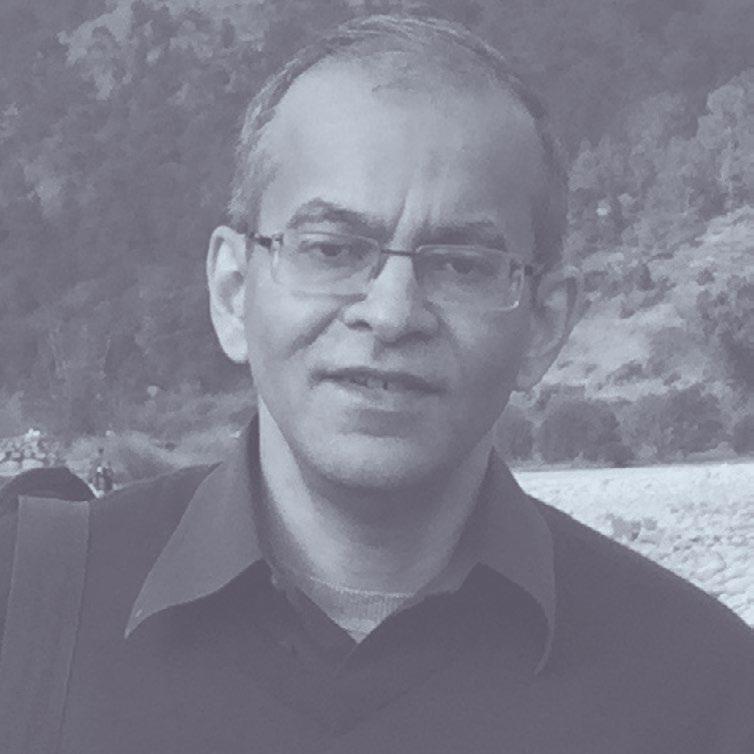
An expert on India-China relations, Ganguly moderated the March 3rd virtual book talk, “ The Deoliwallahs ,” with co-authors Joy Ma and Dilip D’Souza. His CASI April 21st virtual seminar, “ The Cold War’s Long Shadow: Indian Foreign Policy and the Current State of Play of Indo- Pacific Geopolitics ,” was in partnership with the South Asia Center, Center for the Study of Contemporary China, and Perry World House. Ganguly and the points he raised in his seminar were featured in “ The Cold War’s Long Shadow,” a May 2, 2022 Penn Today interview.
 Mekhala Krishnamurthy Ashoka University
Mekhala Krishnamurthy Ashoka University
FY10–12 CASI
Postdoctoral
Research Fellow
Walter C. Ladwig III King’s College London
Tanushree Goyal
Princeton University (2022–) Harvard University (previously)
Radhika Khosla University of Oxford
Devesh Kapur
SAIS, Johns Hopkins University CASI Director 2006–18 2021/22 ANNUAL REPORT 21
Nurturing Emerging Scholars:
Fellow
The CASI Postdoctoral Research Fellowship Program provides dynamic early career researchers with a one- to two-year opportunity to establish their profile as scholars of contemporary India. The fellowship has no teaching obligation, providing young scholars with valuable time to advance their own research agenda. The Center also provides support in connecting Fellows to its considerable networks among scholars and policymakers both in the U.S. and in India.
Naveen Bharathi
Naveen Bharathi, currently at Indian Institute of Technology, Bombay, was a Postdoctoral Research Fellow at CASI from 2020–22. He has written about issues ranging from the relationship between ethnic diversity and public goods provisioning to spatial segregation in contemporary urban India. His research has been covered by many media publications such The Economist, The Hindu, The Times of India, and The Print. and many peer reviewed journals. Prior to his career in research, Naveen worked as an architect and planner in many distinguished architectural and planning firms in India. He was a Raghunathan Family Fellow (2019–20) at Harvard University where he continues to be a Fellow.
Nafis Aziz Hasan
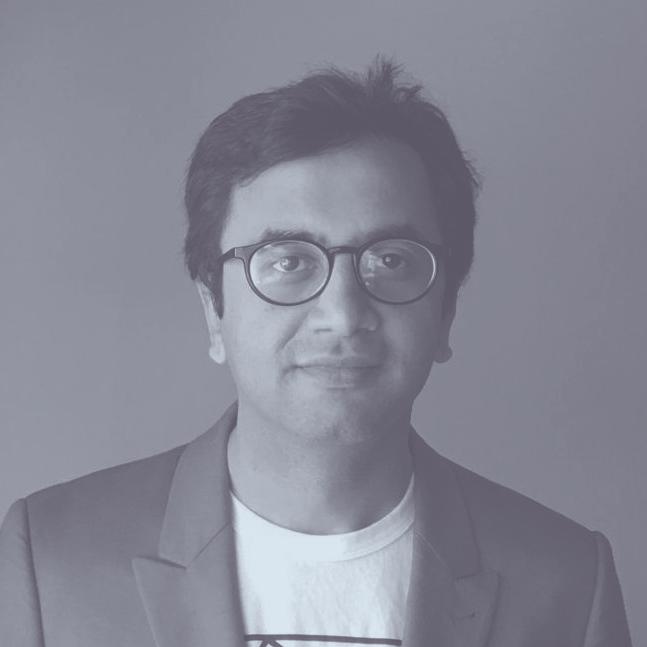
Nafis Aziz Hasan is a postdoctoral researcher at Florida State University. He was CASI’s 2021–22 Postdoctoral Research Fellow. His research and writing focus on the techno politics of digital media, material politics of public institutions, and technological policies for governance, with a regional focus on India. His work has appeared in peer reviewed academic journals such as South Asia, Political and Legal Anthropology Review, and The Economic and Political Weekly, as well as popular outlets such as thewire.in, New Indian Express and raiot.in. His first book, co-authored with two eminent scholars, will be published in September 2022.
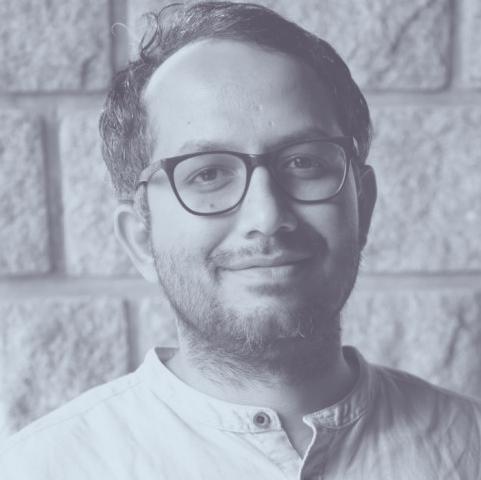
Postdoctoral
Program
2021–2022 Postdocs
CENTER FOR THE ADVANCED STUDY OF INDIA 22
Fellows are also expected to play a key role in the Center’s thriving intellectual community. Fellows organize the academic year seminar series , plan workshops, and contribute to the Center’s working paper series . They also serve as mentors to the incoming CASIaffiliated graduate students and on selection committees for CASI Student Programs’ annual competitions

Postdoctoral Fellow Program Summary:
4HOLD ACADEMIC POSITIONS, TENURE TRACK AND TENURED, IN INDIA, SINGAPORE, AND THE U.S.
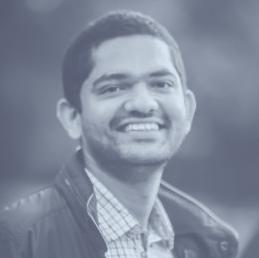
For the first time in its thirty year history, CASI is delighted to be able to welcome three new postdoctoral fellows in 2022–23. Their collective presence will enrich CASI and our wider Penn campus community through their innovative research on topics ranging from agrarian social relations to democratic accountability to constitutional history. Hailing from three distinct social science disciplines (anthropology, history, and political science), they will also work together to advance CASI’s mission of fostering an interdisciplinary intellectual environment, and crafting a programmatic agenda that is sensitive to a wide array of scholarly concerns.

MOST HAVE CONTINUED THEIR CASI AFFILIATIONS AS KEY RESEARCH COLLABORATORS
Amrita
Kurian Shikhar Singh Sarath Pillai
Incoming 2022–2023 Postdocs
CASI HAS SUPPORTED 8 YOUNG SCHOLARS SINCE 2010
. 2021/22 ANNUAL REPORT 23
CASI Student Programs 4
CENTER FOR THE ADVANCED STUDY OF INDIA 24
The Center for the Advanced Study of India encourages and supports Penn student engagement with modern India. CASI provides grants for undergraduate and graduate students conducting research on India’s politics, economy, and society and provides fully-funded summer internship opportunities with internationally renowned partners in India. CASI also offers the Sobti Family Doctoral Fellowship, a year-long doctoral fellowship designed to support Penn Ph.D. students whose research interests align closely with CASI.
Since 2007, CASI has selected 232 Penn students to travel to or conduct research on India. These students represent six continents, 20 countries, and eleven of Penn’s twelve schools. Our extended community can engage with CASI students through the CASI Student Programs (CSP) Blog . The CSP Blog currently has nearly 300 followers who receive email notifications each time a student posts. In 2019, before the impact of COVID-19, the CSP Blog received 19,713 views from individuals representing more than 100 countries around the world.
We are excited to welcome students back to India in summer 2022.

2021/22 ANNUAL REPORT 25
Sobti Family Doctoral Fellowship
The Center for the Advanced Study of India aims to nurture a new generation of scholars in the study of modern India. In line with CASI’s vision, Penn Parents Rajiv Sobti GR’84 and Slomi Sobti, have created the Sobti Family Fellowship to support University of Pennsylvania graduate students in developing independent research interests broadly related to CASI’s agenda. The award includes an unrestricted $10,000 grant with the addition of up to $2,500 in travel expenses, conference attendance fees, and research materials. Sobti Fellows are in residence at CASI for their fellowship year and are invited to partake in seminars, events, and CASI activities throughout the year.
2021–2022 Sobti Fellows
Kimberly Noronha Doctoral Candidate in City and Regional Planning
Kimberly joins CASI from Bombay and Delhi and is currently in her fifth year as a doctoral candidate in the City and Regional Planning Department of Penn’s Weitzman’s School of Design. Her research interests include the lived experience of urban informality in the global south, with a focus on the production and use of space to create and perpetuate the intersectional urban identities and inequalities of informality, poverty, and gender in India and Ghana.

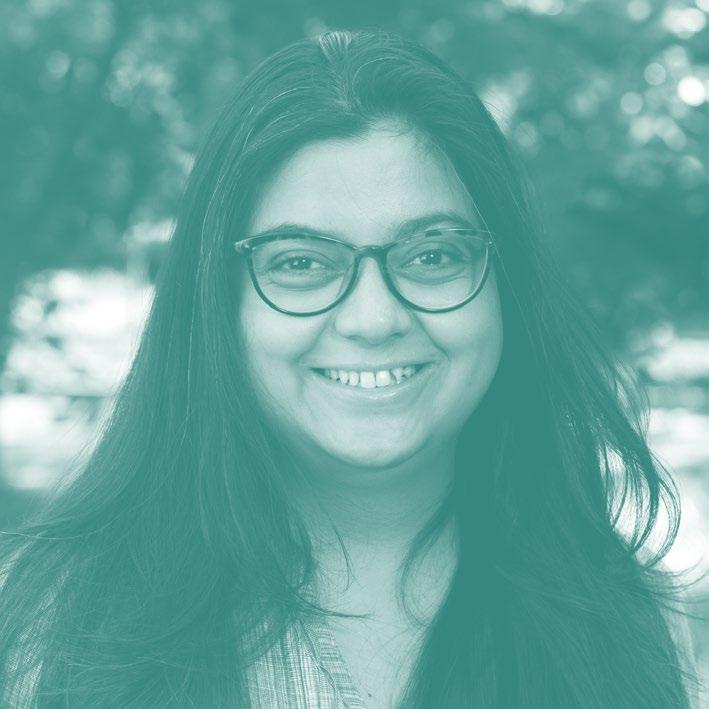
Sneha Mani Doctoral Candidate in Demography
Sneha joins CASI from Chennai, India and is a fourth year doctoral candidate in the Graduate Group of Demography at Penn’s School of Arts & Sciences. Her research interests include inequalities in adult health, treatment of noncommunicable diseases, and evaluation of the quality and potential uses of civil registration data.
CENTER FOR THE ADVANCED STUDY OF INDIA 26
Summer Research Funds
CASI supports Penn students with their independent research related to contemporary India. Undergraduate students are eligible to receive grants up to $4,000 and graduate students can receive up to $5,000. Applications are encouraged from undergraduate students working on senior theses and graduate students conducting and analyzing fieldwork for their capstone projects or dissertations.
In 2021, we supported eight graduate students via home-based research grants in lieu of travel funds due to the ongoing COVID-19 pandemic. To foster community and build a strong student network, we hosted monthly student research workshops throughout the summer. Learn more about our graduate students below:
Megan Reed: School of Arts & Sciences, Ph.D. Candidate in Sociology: Three Chapters on Marriage and the Reproduction of Social Inequalities in India
Rithika Kumar: School of Arts & Sciences, Ph.D. Candidate in Political Science: The Politics, They are A-Changin’: Making Sense of Rising Female Political Participation in India
Arnav Bhattacharya: School of Arts & Sciences, Ph.D. Candidate in History & Sociology of Science: Making Sex Scientific: A History of Sexual Science in India
Raka Sen: School of Arts & Sciences, Ph.D. Candidate in Sociology: Everyday Adaptations: How Adapting to Climate Change is Reshaping the Sociopolitical Landscape of the Sandarbans
Anahita Kumar: Graduate School of Education, Ph.D. Candidate in Education: Nudging Parent-Child Engagement: A Technology-based Intervention to Promote Child Development during COVID-19 School Closures in India
Kim Fernandes: School of Arts & Sciences / Graduate School of Education, Ph.D. Candidate in Anthropology and Education: Disability in India: How Does the Emergence of Bureaucratic Structures to Make the Disabled Body Knowable Influence the Everyday Experiences of the Disabled?
Nico Millman: School of Arts & Sciences, Ph.D. Candidate in English: The Agrarian Question in Literature and Politics across South Asia and Latin America, 1910s–Present
Rashi Sabherwal: School of Arts & Sciences, Ph.D. Candidate in Political Science: Female Political Participation in India: Understanding the Challenges and Opportunities to Women’s Autonomous Political Participation Across a Range of Measures
2021/22 ANNUAL REPORT 27
Summer Internship Program
CASI offers fully-funded summer internship opportunities to Penn students eager to explore India. CASI partners with nonprofit organizations and socially responsible companies who work on a range of challenging contemporary issues, including public health, rural development, environmental sustainability, education, gender, and social enterprise.
Since 2007, CASI has funded Penn students to work with 17 organizations across India. Students work fulltime schedules for 8–10 weeks and contribute to the CASI Student Programs (CSP) Blog throughout the summer, which gives our network a window into this transformative experience.

Though we suspended operations due to the COVID-19 pandemic, we are delighted to resume the in-person CASI Summer Internship Program in summer 2022. Students traveled to India to work with two of our partners, the Public Health Foundation of India and Aravind Eye Care System.

CENTER FOR THE ADVANCED STUDY OF INDIA
28
Sambhali Trust Jodhpur, Rajasthan
LEAP Skills Academy
New Delhi
Public Health Foundation of India (PHFI) Gurgaon, Haryana
“Your perception of India, Indian culture, and your identity will change every day… You’ll learn from some of the most knowledgeable, passionate, and kind people you’ve ever met; they’ll inspire you with the culture of respect that pervades Aravind and the humility and desire to learn you’ll feel in every conversation. ”
– Anjali Mahajan C’22, Aravind Eye Care System’19 2022 Thouron Prize Awardee

The Naandi Foundation Hyderabad, Telangana and Araku Valley, Andhra Pradesh

Shahi Exports Bangalore, Karnataka
Aravind Eye Care System Madurai, Tamil Nadu
2021/22 ANNUAL REPORT 29
Research Assistants
CASI supports graduate and undergraduate students with Research Assistant opportunities throughout the year. This allows Penn students an intimate, hands-on experience in the world of academic research and broadens their perspectives on contemporary India. Many students use this experience as a launching point to begin conducting their own research in India.
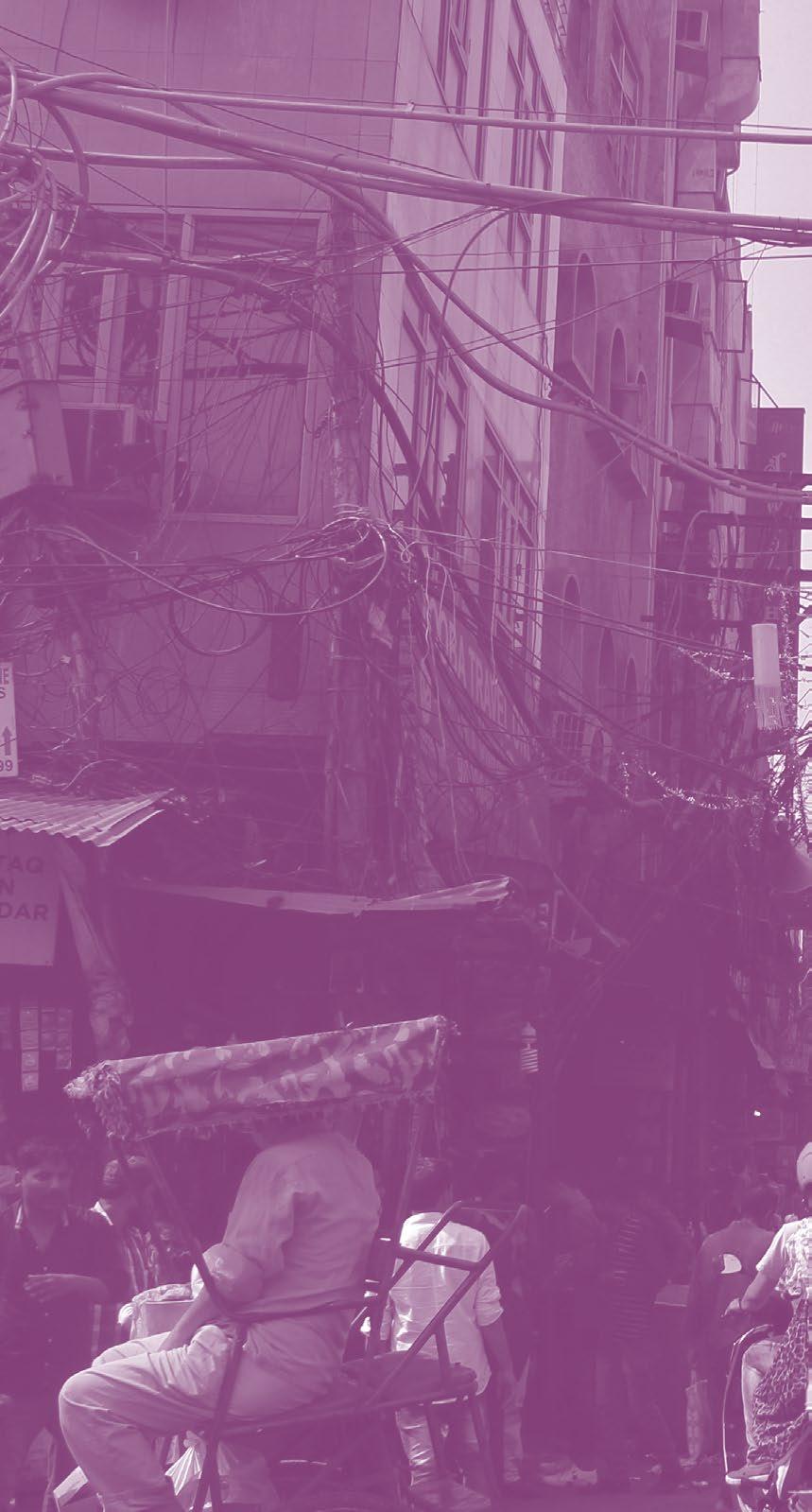
RAs in India
CASI also supports young scholars in India through project-based RAships. In 2021–2022 Deepaboli Chatterjee, Basim Nissa, and Sharik Laliwala conducted fieldwork interviewing elected leaders and bureaucrats in Rajasthan as part of the small towns governance project.
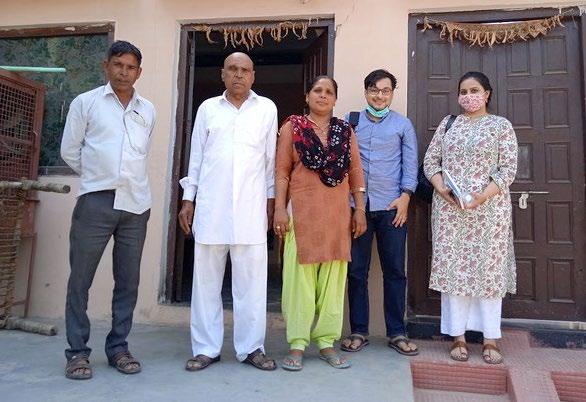
CENTER FOR THE ADVANCED STUDY OF INDIA 30
Mathew Chemplayil C’23, majoring in International Relations, was a parttime CASI GIS Research Assistant for CASI Director, Tariq Thachil. Mathew worked on projects related to creating digital maps on small towns for the small towns governance project, among other research as directed.

Rithika Kumar, Ph.D. Candidate in Political Science, School of Arts and Sciences was a parttime CASI Graduate Research Assistant in 2021–22. Her work included organizing the Fall 2021 workshop, "Hidden Backbones: Understanding India's Migrant Workers."


2021/22 ANNUAL REPORT 31
Outreach: IiT and Events 5
CENTER FOR THE ADVANCED STUDY OF INDIA 32
Over the past year, CASI has made tremendous strides in outreach and visibility, both on Penn’s campus and around the world. We have continued to livestream events to a global audience and publish event videos on CASI’s website with Hindi and English subtitles. Our biweekly publication, India in Transition (IiT ), expanded to include two additional Indian languages, a new partnership for syndication, and a Guest Editor program to produce 3–4 part topical series.
151%
TALKS
DIFFERENT
GROWTH IN NEWSLETTER SUBSCRIBERS 58% GROWTH IN TWITTER FOLLOWERS 10+ COUNTRIES VIEWED 2021–22 CASI VIRTUAL EVENTS 25
11
DISCIPLINES
2021/22 ANNUAL REPORT 33
India in Transition (IiT )

India in Transition (IiT) presents brief, analytical perspectives on the ongoing transformations in contemporary India based on cutting-edge research in the areas of economy, environment, foreign policy and security, human capital, science and technology, and society and culture.
March 2022 marked 15 years of India in Transition (IiT ) as a biweekly digital publication.
In 2021, following the widely-read 2020 IiT Special Series on COVID-19’s impact on India, we published part-two of this Series as India was in the midst of a new Delta surge.
CENTER FOR THE ADVANCED STUDY OF INDIA 34
This past year, in response to a readership survey, we began translating and publishing IiT in Bangla and Tamil, in addition to our longstanding practice of publishing IiT in Hindi. This expansion speaks to CASI’s mission of making academic analysis on India more accessible to a non-English speaking audience. IiT authors have expressed their gratitude for having four translations, which widens the scope of their reach and awareness of their work within India.
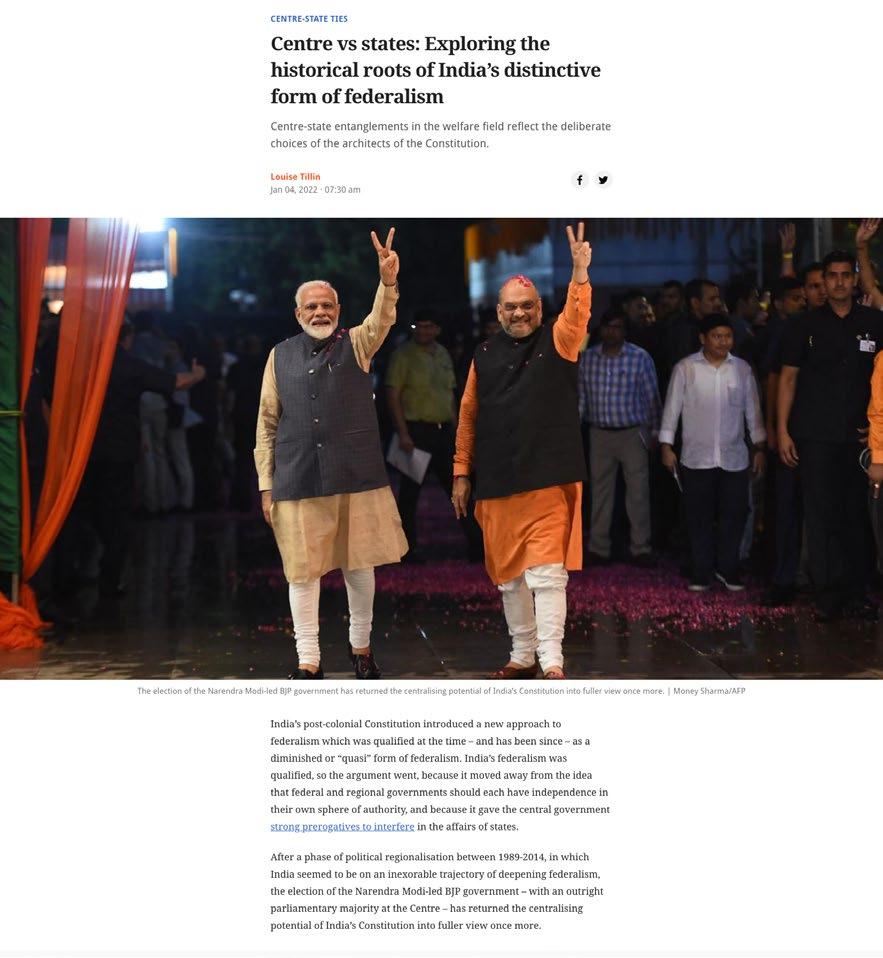
In 2021–22, we established a partnership with Scroll.in, syndicating IiT articles to their global readership of 7–9 million per month. In conjunction with this partnership, we also launched an IiT Guest Editor program in which scholars produce short series by recruiting authors to write on a common theme. Guest-edited series this year have sought to make sense of the many manifestations of political and economic centralization in India today and India’s multi-scalar response to climate-change crises.

“IiT has quite a legacy. It’s fantastic that it is being translated and the stories can be shared widely.” Usha Rao (IiT author, May 2022) আইআইটি বাংলা (IiT Bangla) ஐ.ஐ.டி தமிழ (IiT Tamil) आईआईटी हिंदी (IiT Hindi) 2021/22 ANNUAL REPORT 35
Events & Outreach

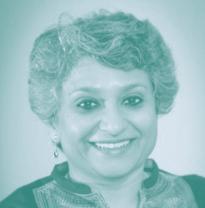
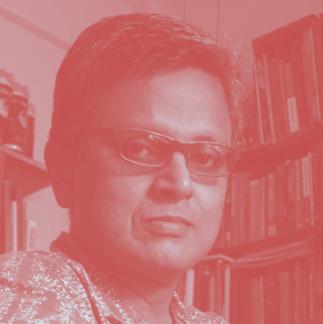


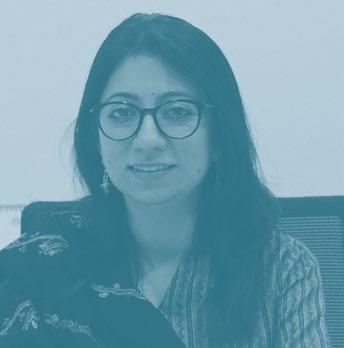
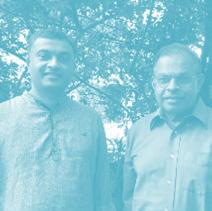
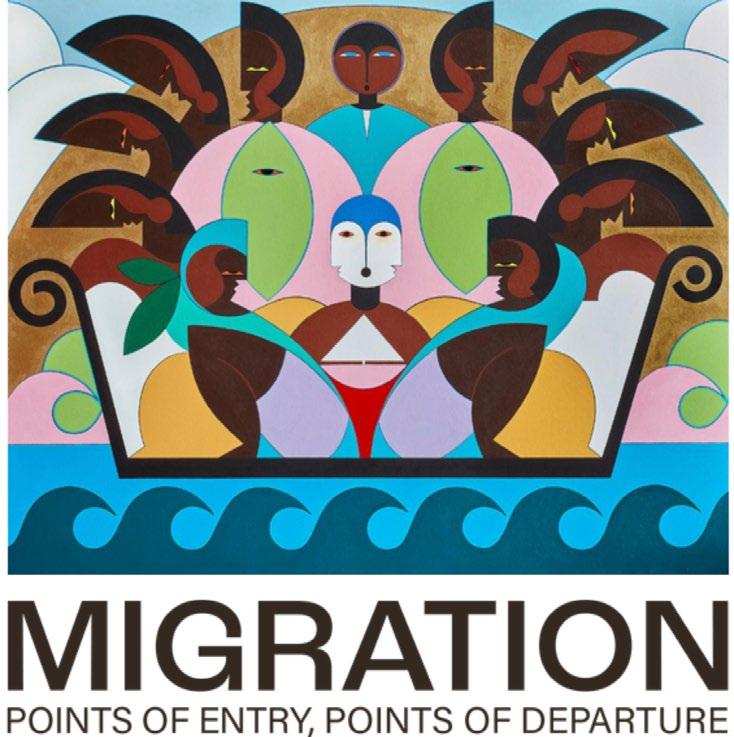


Our robust schedule of interdisciplinary virtual events has included 25 talks by scholars from 11 different disciplines. Each event had at least one co-sponsor, leading to increased collaborative outreach with 15 departments, centers and schools at Penn.

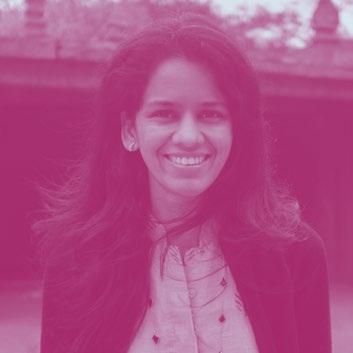
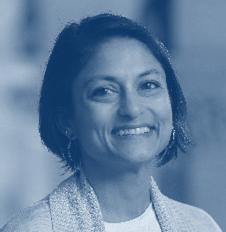

CENTER FOR THE ADVANCED STUDY OF INDIA 36












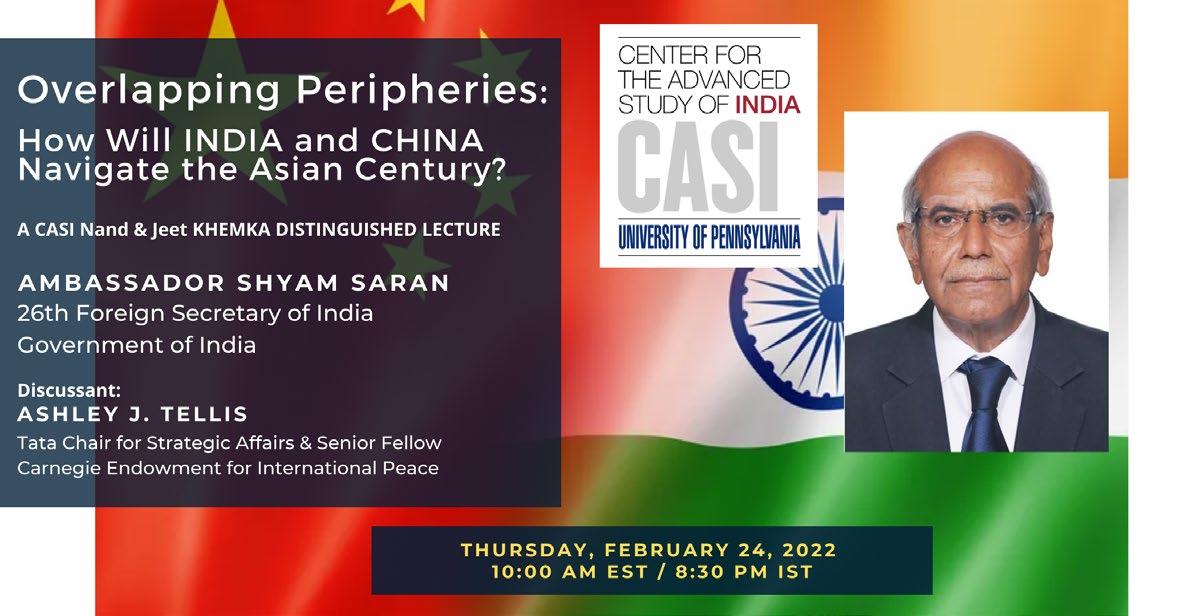


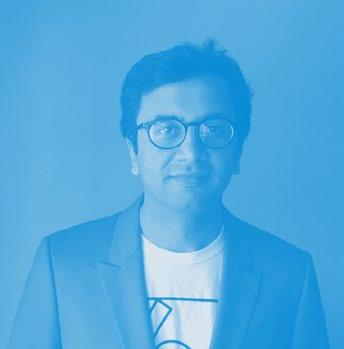
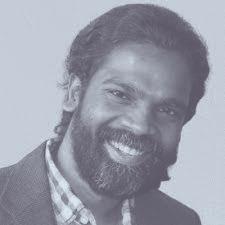
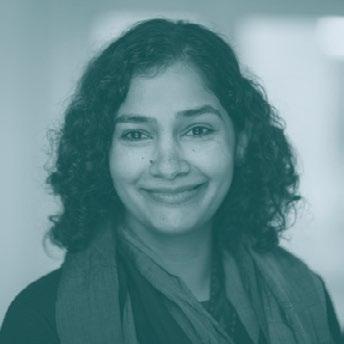
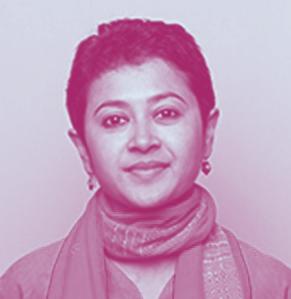






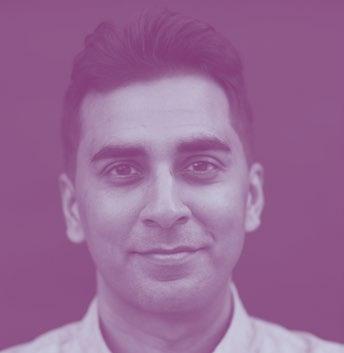
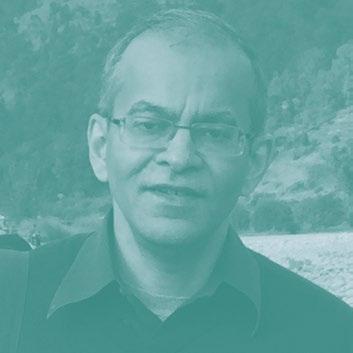


2021–22 Co-Sponsorships Across Campus Hidden Backbones: Understanding India’s Migrant Workers 2021/22 ANNUAL REPORT 37
Looking Ahead
6 CENTER FOR THE ADVANCED STUDY OF INDIA 38
As India turns 75 on August 15 of this year, its growing importance to global economic trends and geopolitical affairs during what some observers have dubbed ‘the Asian Century’ could not be more evident. India is projected to become the world’s most populous nation in the next 12 months, with over 1.4 billion people, and is currently the sixth largest economy in the world. It also remains a country of extremes, home to the third highest number of billionaires in the world, but also a place where 1 in 3 children under five years of age are malnourished. As the first academic research institute in the U.S. focused on contemporary India since 1992, CASI is well positioned to build on its strong foundations to study India’s emergence as a global power, and to examine domestic transformations shaping its economy, politics, and society.
“For 30 years, CASI has fostered symbiotic ties between Penn and India, through research addressing India’s most pressing challenges, by hosting scholars and policymakers from India on campus, and by sending students to work and study in India. As India turns 75, and is set to become the most populous country in the world, CASI’s mission could not be more vital.”
– Tariq Thachil, CASI Director
“How can Americans who have never met India in their educational experience be expected to live intelligently in such a world?”
– Professor W. Norman Brown, founder of area studies as a discipline in the U.S. and founder of the Department of South Asia Studies at Penn, to his colleagues in 1939 anticipating India taking its place among leading powers of a decolonizing world.
The Ministry of External Affairs, Government of India in 1992 recognized the Center’s potential as “an innovative project that could provide an impetus to U.S.-India relations in overall terms.”
Looking Back: 30 Years of CASI
The 1991 liberalization of India’s economy was the catalyst for Professor Emerita Francine Frankel’s vision to establish CASI in 1992. In 1997 Frankel, established the University of Pennsylvania Institute for the Study of Contemporary India (UPIASI), to serve as CASI’s sister organization in New Delhi. For a quarter century, CASI and UPIASI have collaborated on research projects and programming, creating a rich network of scholarly collaborations between researchers at Penn and in India. During Devesh Kapur’s tenure as Director, (2006–2018), CASI expanded its research to examine migration, urbanization, socially marginalized groups, domestic politics, agricultural markets, and security studies. This work was continued under Acting Director Marshall M. Bouton (2018–2020).
Looking Forward: What’s Next?
Since 2020, Tariq Thachil has served as CASI’s fourth Director. During his tenure, CASI has looked to develop new policyrelevant research projects on India’s urban and rural transitions. Current projects range from understanding governance challenges facing India’s small towns, food waste in agricultural supply chains, the impact of COVID-19 on India’s urban slums, and new work on climate change and pollution. To pursue these projects, CASI has rapidly increased the size of its postdoctoral fellowship program, and the number of non-resident scholars affiliated with the Center. Beyond these substantial research programs, CASI continues to offer support for student research and internships in India, and host an array of distinguished visitors and new voices from India on campus.
2021/22 ANNUAL REPORT 39
30th Anniversary Year
CASI turned 30 on June 25, 2022. A Fall 2022 symposium to be held at 1:30 p.m. on Thursday, October 13 will commemorate the occasion on campus. CASI’s 30th Anniversary Symposium, “India at 75, CASI at 30” will feature three panels that highlight key thinkers on India’s economy, domestic politics, and foreign policy.
India’s Economy, Trends and Prospects with Viral Acharya, Vishal Mahadevia, Prachi Mishra, and Rakesh Mohan India’s Domestic Politics with Niraja Gopal Jayal, Pratap Bhanu Mehta, and Steven I. Wilkinson India in the World with Alyssa Ayres, Shivshankar Menon, Manjari Chatterjee Miller, and Ashley J. Tellis
Plans are also underway for a Spring 2023 CASI/UPIASI Joint Symposium with reception to mark 30 years of CASI and 25 years of UPIASI. The occasion will be held during Penn’s Spring Break 2023.
CASI Workshops
CASI’s research activities in the year ahead will include the convening of a series of workshops commemorating CASI’s 30th Anniversary. The workshops will include two virtual workshops and three in-person workshops to be held in Philadelphia and New Delhi.
TOPIC DATE LOCATION
“City-Drafting: PropertyMaking and Bureaucratic Urbanism in South Asia”
“Digital India and State Making”
May 23 2022
In Person Philadelphia
Indivar Jonnalagadda Ph.D. Candidate, UPenn SAS
June 28–29 2022 Virtual
Nafis Aziz Hasan
FY22 Postdoc
Rukmini S.
“Improving India’s Statistics and Data Quality” November 2022 Virtual
and CASI Fall 2022 Visiting Fellow
OUTPUT
“CASI Political Economy Annual Workshop”
May 2023
In Person Philadelphia
Carnegie Endowment
International Peace
Journal
Journal
Series
Resume an annual convening of leading political economy scholars at CASI
Oxford
“Environmental Challenges Facing India’s Cities”
March 17–18 2023
In Person
Delhi
PARTNER(s)
Academic
CASI
Academic
Journalist
Monthly Webinar
for
New
India Centre for Sustainable Development Academic Journal CENTER FOR THE ADVANCED STUDY OF INDIA 40
Saluja Global Fellows
The new Saluja Global Fellows Program has been made possible by the generous three-year term gift from Vishal Saluja ENG’89 W’89. CASI is excited to launch the program during the 2022–2023 academic year, coinciding with the Center’s 30th Anniversary. This new program enables CASI to invite eminent leaders and rising experts on contemporary India preferably from the fields of media, culture, law, and contemporary history to be in residence for one to two weeks at CASI.
We have selected a distinguished inaugural cohort of Saluja Fellows for 2022–23. Barkha Dutt, India’s leading female news journalist and TV anchor will be the Fall Saluja Fellow in October 2022, and Ramachandra Guha, India’s leading public historian will serve as the Spring Saluja Fellow in April 2023.
Barkha Dutt, one of India’s best-known journalists, is the Founding-Editor of Mojo Story, a multi-media digital platform. The recipient of more than 50 national and international awards—among them the Padmashri and the Global Leader for Tomorrow from the World Economic Forum—Dutt is also a columnist with The Washington Post. With 25 years of reporting experience, Dutt has reported from war zones and conflict areas across the world. Most recently, she won global acclaim for her path-breaking and unprecedented ground reportage of the pandemic through travels across India. A Visiting Fellow at the Reuters Institute at Oxford University and an Asia Society Fellow, Barkha Dutt is the author of two books—To Hell & Back, Humans of Covid and This Unquiet Land: Stories from India’s Fault lines. Dutt studied at St. Stephens College, Delhi University and Columbia University’s Graduate School of Journalism.

Ramchandra Guha is a historian and biographer who is currently Distinguished University Professor at Krea University. He has previously taught at Stanford University, the Indian Institute of Science, and the London School of Economics. His books include a pioneering environmental history, The Unquiet Woods (University of California Press, 1989), an award-winning social history of cricket, A Corner of a Foreign Field (Picador, 2002), and a widely acclaimed history of his country, India after Gandhi (Macmillan/Ecco Press, 2007) He is also the author of a two-volume biography of Mahatma Gandhi (Gandhi Before India, 2014, and Gandhi: The Years that Changed the World, 2018, both published by Knopf), each of which was chosen as a book of the year by The New York Times. His most recent book is Rebels against the Raj (Knopf, 2022). His books and essays have been translated into more than twenty languages.
Guha’s awards include the Leopold-Hidy Prize of the American Society of Environmental History, the Howard Milton Prize of the British Society for Sports History, the Sahitya Akademi Award, and the Fukuoka Prize for contributions to Asian studies. He is the recipient of an honorary doctorate in the humanities from Yale University.
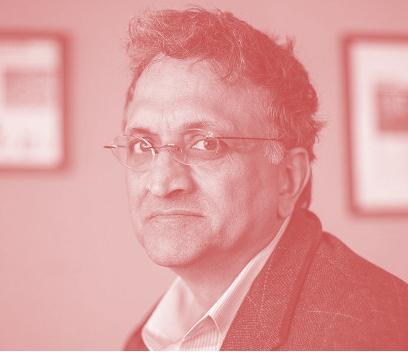
2021/22 ANNUAL REPORT 41
UPIASI 7 CENTER FOR THE ADVANCED STUDY OF INDIA 42
The University of Pennsylvania Institute for the Advanced Study of India (UPIASI) was established in 1997 as CASI’s counterpart institution in India to ensure a stronger network for collaborative research and scholarship. Under the leadership of Dr. Eswaran Sridharan , UPIASI has developed a strong research program and academic presence of its own, and is increasingly playing a nodal role for a number of Penn-related initiatives in India such as global immersion programs, student internships and exchanges, and orientations for newly admitted students from India.
We aim to facilitate research that fosters a greater understanding of problems facing contemporary India especially in areas of Politics & Governance, International relations, National Security, Economic Development, Energy and Environment amongst others. UPIASI thus acts as a catalyst to stimulate exchange of knowledge and best practices for the mutual benefit of American and Indian scholars.
UPIASI partners with various Penn entities on a range of activities, including, The School of Arts and Sciences, CASI, Penn Global, College of Liberal and Professional Studies, South Asia Center, The Lauder Institute, Penn Alumni Relations, and Penn’s Alumni Interview Program. UPIASI also works closely with alumni groups in India, including the five Penn Clubs and the four Alumni Interview Committees.
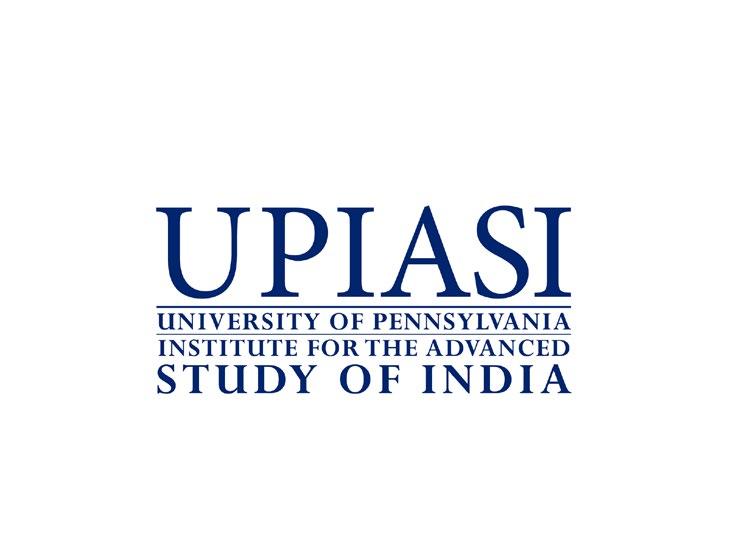
Eastward Ho? India’s Relations with the Indo-Pacific, edited by Eswaran Sridharan, Orient Blackswan, 2021. This collection looks at India’s options given China-India tensions as well as trade integration all situated in the larger context of India’s increasingly close relationship with the United States and its allies.
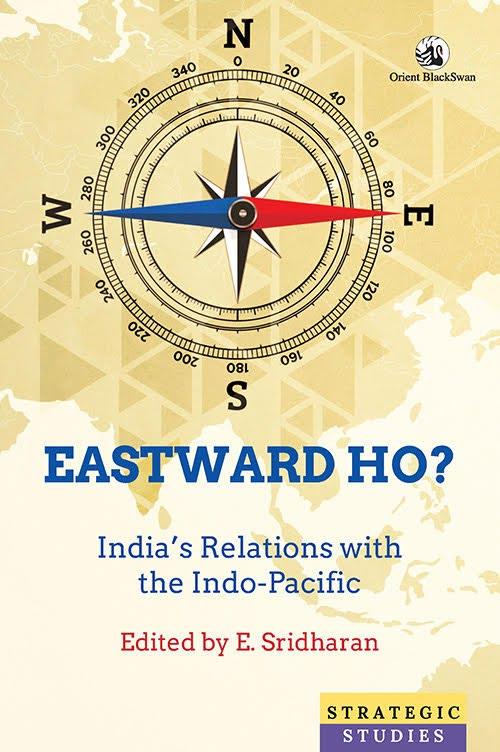
AUTHOR
Eswaran Sridharan, Academic Director and Chief Executive, UPIASI

2021/22 ANNUAL REPORT 43
CASI International Advisory Board (IAB)
Tania Ahuja
Founder and CEO Nobias
Mukulika Banerjee
Associate Professor, Social Anthropology
The London School of Economics and Political Science
Marshall M. Bouton
Former IAB Chairman (2004-12)
CASI Senior Fellow
CASI Acting Director & Visiting Scholar (2018–20)
President Emeritus, The Chicago Council on Global Affairs
Patricia Dhar
Head of Social Transformation, Holy Trinity Brompton
Seth M. Ginns
Managing Partner and Head of Liquid Investments CoinFund
David Gross-Loh Managing Director and Co-Head, Asia Private Equity Bain Capital, LLC
Charles R. Kaye*
Former IAB Co-Chair (2012–20)
Chief Executive Officer Warburg Pincus LLC
Shiv Vikram Khemka
Chairman, The Global Education & Leadership Foundation Vice Chairman, SUN Group
Vishal Mahadevia
Managing Director and Head of India Warburg Pincus
Zia Mody* Co-Founder & Managing Partner AZB & Partners
Dhananjay M. Pai IAB Co-Chair (2020–present) President & Chief Operating Officer P. Schoenfeld Asset Management LP
Ramanan Raghavendran Managing Partner Amasia
Varsha Rao CEO, Nurx
Former Head of Global Operations, Airbnb
H.E. Taranjit Singh Sandhu (ex officio)
Ambassador of India to the United States
Parag Saxena
Founding Partner & CEO New Silk Route Partners; and Founding Partner & CEO Vedanta Capital
Rajiv Sobti Managing Partner Karya Capital LP
Sanjiv Sobti
IAB Co-Chair (2012–present) Senior Advisor Credit Suisse
Eswaran Sridharan (ex officio)
Academic Director and Chief Executive University of Pennsylvania Institute for the Advanced Study of India
Ashley J. Tellis Tata Chair for Strategic Affairs & Senior Fellow
Carnegie Endowment for International Peace
Tariq Thachil (ex officio)
CASI Director
Professor of Political Science Madan Lal Sobti Professor for the Study of Contemporary India University of Pennsylvania
* Members with terms ending December 31, 2021
CENTER FOR THE ADVANCED STUDY OF INDIA 44
CASI Faculty and Staff
Tariq Thachil
(ex officio)
CASI Director Professor of Political Science Madan Lal Sobti Professor for the Study of Contemporary India University of Pennsylvania
Juliana Di Giustini Deputy Director
Georgette Rochlin Associate Director
Alan Atchison Senior Publications Editor
Laura Iwanyk Assistant Director, CASI Student Programs and Outreach
Juni Bahuguna Administrative Coordinator
Naveen Bharathi Postdoctoral Research Fellow
Nafis Aziz Hasan Postdoctoral Research Fellow
2021/22 ANNUAL REPORT 45
Giving
Friends of CASI
The Friends of CASI are individuals who, by their annual unrestricted financial support, demonstrate their dedication to the mission of the Center. As an integral part of the Center’s community, many members also contribute their time as advocates of CASI’s work. In appreciation, we encourage our Friends of CASI to take special advantage of the programs that their support sustains, including unique opportunities to engage with each other and special access to the work of the Center.
Make a Gift Online
For more information about making a gift to CASI please contact Michael Baker, Senior Director of Global Operations, School of Arts and Sciences, University of Pennsylvania.
CENTER FOR THE ADVANCED STUDY OF INDIA 46
Photo Credit: Many of the photos in this annual report were taken by Penn students during their CASI-sponsored trips to India.
casi.sas.upenn.edu




















 RESEARCH AFFILIATE
Naveen Bharathi
RESEARCH AFFILIATE
Naveen Bharathi


 RESEARCH AFFILIATES
Shoumitro Chatterjee
Tariq Thachil
Aprajit Mahajan
RESEARCH AFFILIATES
Shoumitro Chatterjee
Tariq Thachil
Aprajit Mahajan


 RESEARCH AFFILIATE
Nafis Aziz Hasan
RESEARCH AFFILIATE
Nafis Aziz Hasan




















 Mekhala Krishnamurthy Ashoka University
Mekhala Krishnamurthy Ashoka University
































































